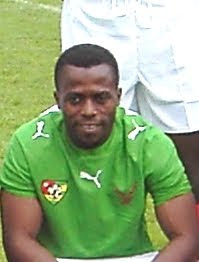 On 1 November 1897, Juventus was founded in Turin. Over the next century, it would go on to become the most successful club in Italy. The name "Juventus" is Latin for "youth" and reflects the fact that the club was founded by students at Turin's Massimo D'Azeglio Lyceum.
On 1 November 1897, Juventus was founded in Turin. Over the next century, it would go on to become the most successful club in Italy. The name "Juventus" is Latin for "youth" and reflects the fact that the club was founded by students at Turin's Massimo D'Azeglio Lyceum.Juventus, or "Juve" for short, originally played in pink and black. In 1903, however, they received a shipment of Notts County's black and white striped shirts from England and have worn the stripes ever since, earning the nickname "Bianconeri." They have also been called "The Old Lady," as a play on the name Juventus.
Juve won their first league title in 1905, after finishing as runners-up the two previous seasons. They currently have 25 league titles, including a series of five consecutive Scudettos from the 1930-31 season through the 1935-35 season and 12-season run in which they finished in the top two (1971-72 to 1983-84).
They have also enjoyed European success, advancing to the European Cup Final seven times, winning twice (1985, 1996). The 1985 victory was overshadowed by the deaths of 39 people, most of whom were Juventus supporters, when a wall collapsed at Heysel Stadium.
Juventus most recently won Serie A in 2005 and 2006 under manager Fabio Capello, but were subsequently convicted of match-fixing. The Italian Football Federation stripped Juve of those two titles and relegated the club to Serie B for the first time in its history. They won Serie B and were promoted back to the top flight at the first opportunity.





























